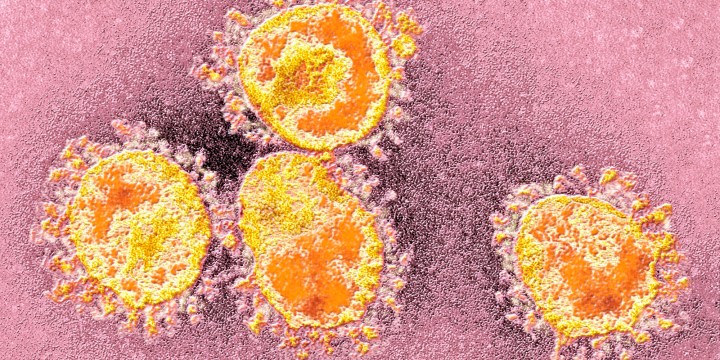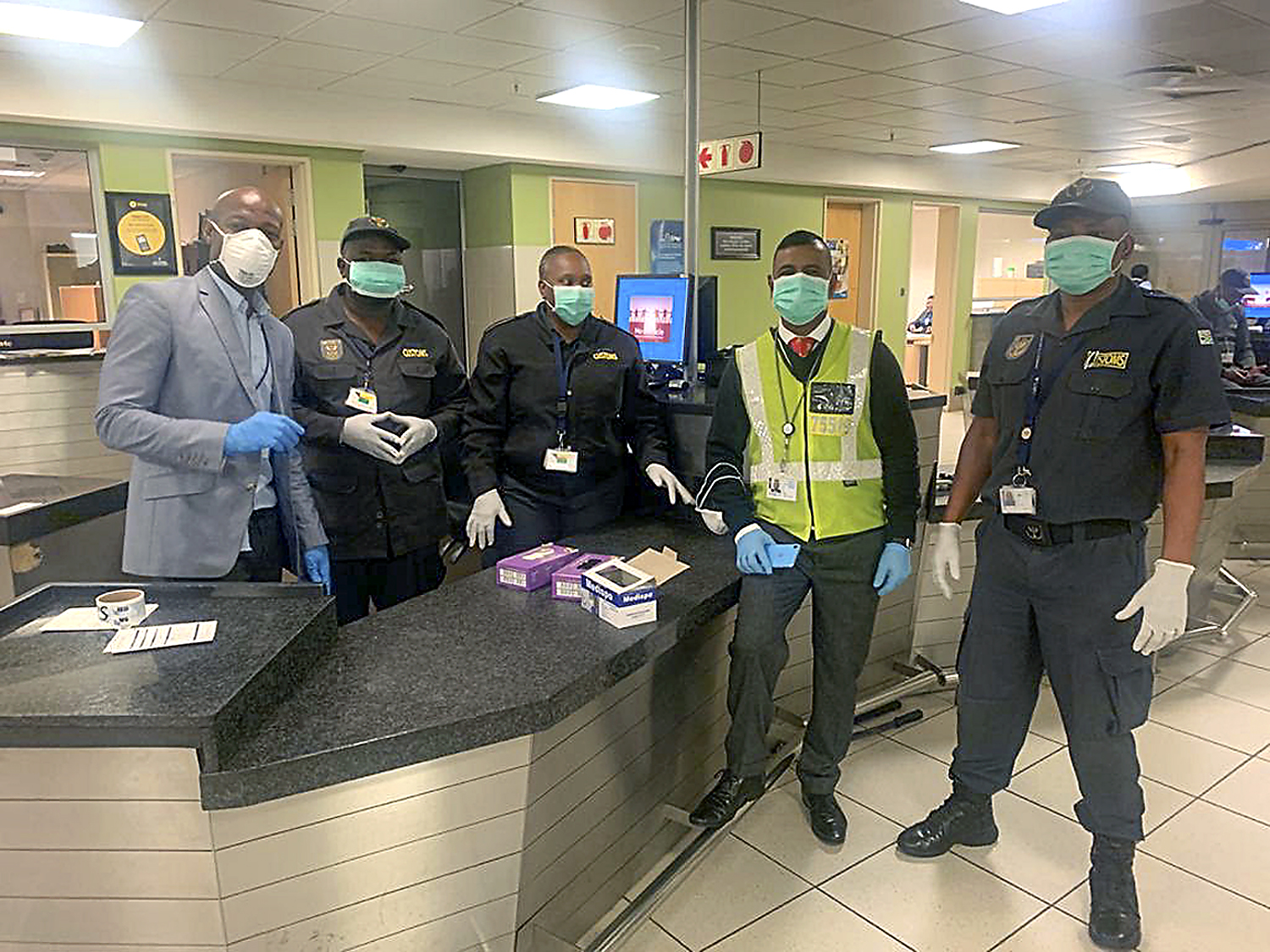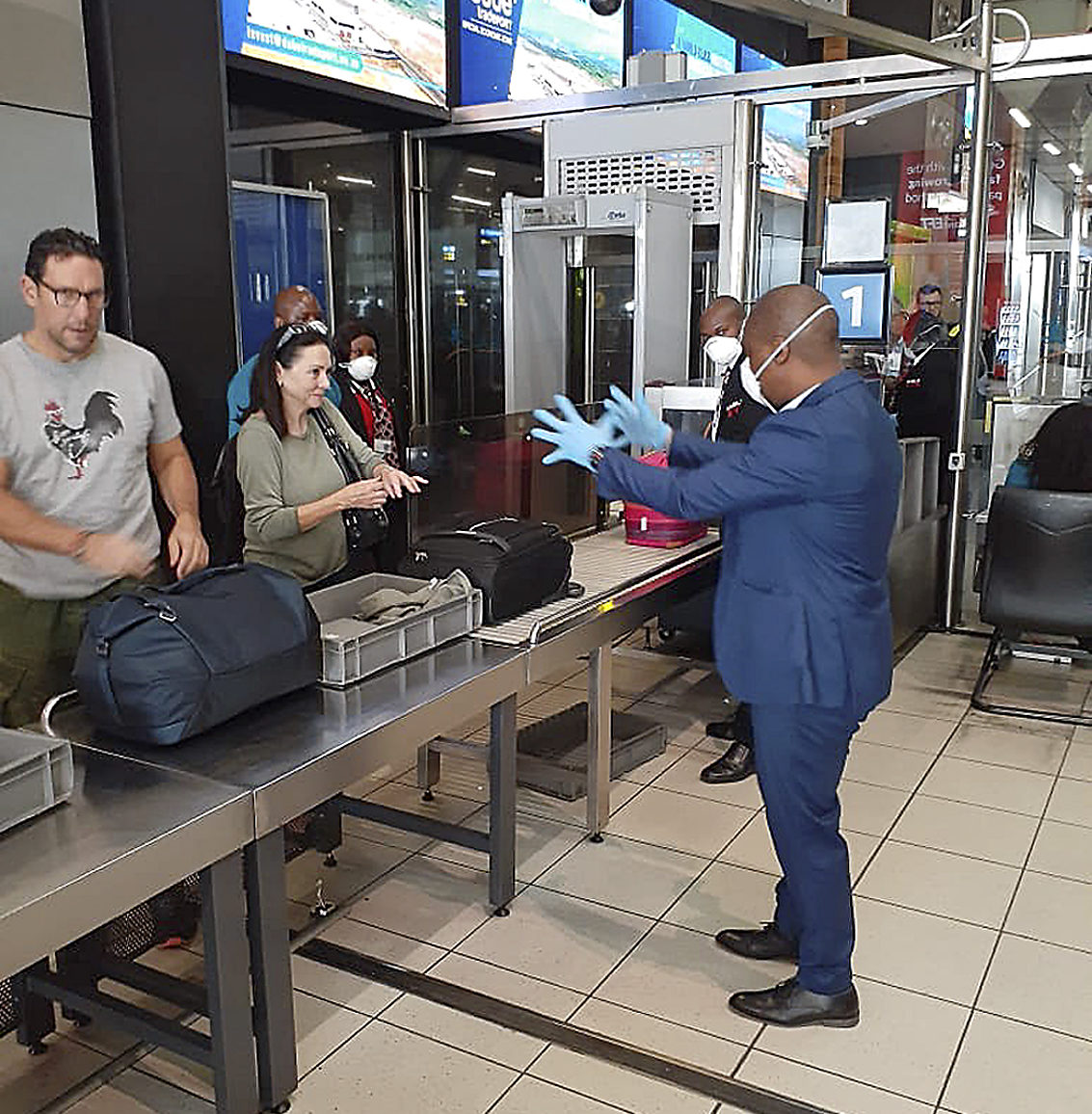Covid-19
As first Coronavirus case confirmed, South Africa told to keep calm

A father of two from KwaZulu-Natal contracted the virus while on holiday in Italy. The National Department of Health says it has a plan to deal with the disease which has claimed thousands of lives since it first appeared in Wuhan, China just months ago.
The first Coronavirus (Covid-19) case has been confirmed in South Africa. The Department of Health announced on 5 March that a 38-year-old man from KwaZulu-Natal had contracted the virus while on holiday in Italy.
Minister of Health Zweli Mkhize said the man, who had travelled with his wife and was part of a group of 10 holidaymakers, returned to South Africa on 1 March. Three days later he consulted a general practitioner after presenting with symptoms of fever, headache, malaise, sore throat and a cough.
The man and his doctor have been self-isolating since the diagnosis was confirmed. The couple has two children.
According to the statement, the Emergency Operating Centre (EOC) interviewed the 38-year-old and his doctor to find out who they had been in contact with. A tracer team has been deployed to KwaZulu-Natal with epidemiologists and clinicians from the National Institute for Communicable Diseases to find out if the people identified had been infected.
Mkhize briefed the media on the details of the case and the department’s plans to contain the spread of the virus after attending a Parliamentary debate on South Africa’s readiness for a potential Covid-19 outbreak.
He was accompanied by Deputy Minister of Health Joe Phaahla, Acting Chief Director of the Department of Health, Dr Patrick Moonasa, and both Dr Kerrigan McCarthy as well as Dr Cheryl Cohen from the National Institute for Communicable Diseases (NICD).
Mkhize said the department is consulting with the World Health Organisation and the NICD on a way forward and a “preparedness plan” has been put together.
For now, 10 facilities across the country will treat Covid-19 patients.
In KwaZulu-Natal, four hospitals have been chosen: Greys, Addington, Ngwelezane and Manguzi.
Phaahla explained that each hospital will have an isolated ward with 20 -30 beds, depending on the size of the hospital. He estimated there would be 300-400 beds around the country and patients could be moved between hospitals to spread capacity in future.
Mkhize clarified that hospitals would not be areas for quarantine.
“We don’t bring people for quarantine in a hospital, they go for treatment,” he said.
The infected KwaZulu-Natal man is being monitored for 14 days, (the incubation period for Covid-19). He is also receiving treatment from a hospital.
The rest of the family are also under self-quarantine.
McCarthy explained what self-isolation entails:
“The World Health Organisation recommends that a person stays outside the radius of one metre of other family members, not share a bed, if possible sleep in a separate room, and at the first sign of symptoms, seek healthcare. The person should also not go to work or school and should remain within the confines of their home.”
Cohen said the people that the patient was in close contact with will also be asked to self-quarantine for 14 days.
“(They will) be monitored by our medical staff so that if they display any symptoms they are rapidly tested.”
Questions arose about whether health officials would be deployed to public spaces such as taxi ranks and churches to test people for infection. He said this wouldn’t happen, but the department would consult with interest groups such as churches and sports clubs to get input on how to educate the public on how to prevent infection and monitor whether the virus is spreading in communities.
Cohen said the NICD would start testing for Covid-19 when doing routine monitoring of respiratory diseases such as flu.
Mkhize affirmed that currently, the department had “enough capacity” to deal with the virus, and there was no need for panic.
“We have seen that in some of the countries they have closed down the schools, but this has been in countries where a large number of cases have been reported.”
Mkhize hit out at the media for its handling of the first detected case and for not being “fair”.
“We can’t win with the media,” he said. “We have one case of COVID-19 and suddenly it’s the apocalypse.”
“I have seen SMSes from journalists saying that they have the [patient’s] address and are going to camp outside the house.”
Mkhize also confirmed that the cost of any treatment for infected patients would be drawn from the health budget, and that he would only request additional funding if necessary.
Asked why a passenger flying in from Italy — a COVID-19 hotspot where 2,500 infections and 79 deaths had been recorded by Wednesday — was not detected as infected, Mkhize said: “He had no symptoms, so nothing was detected.”
He said controls around passengers entering the country from Italy would be tightened.

Customs officials OR Tambo Airport in Johannesburg.
(Photo: Department of Health)
Tracing teams searching for people who may have come into contact with South Africa’s first officially diagnosed COVID-19 patient were expected to land in KwaZulu-Natal on Thursday night.

OR Tambo Airport
(Photo Department of Health)
They would then make their way to the quaint, upmarket town of Hilton in the province’s Midlands.
This is according to the doctor who first treated the 38-year-old male patient, a director at a Hilton firm.
Daily Maverick spoke to the doctor at her home on Thursday night.
When contacted, the wife of the patient politely said she would not be commenting.
Daily Maverick has chosen not to name the doctor or the patient to protect them from potential harassment.
The self-quarantined doctor who spoke to Daily Maverick said: “I am not dead, not getting ready for my coffin. We have been getting messages of condolences.”
She has a practice at an office park in Hilton that she shares with other doctors.
The woman said she had not been told to refuse media questions, but had been asked to wait for Mkhize’s announcement before she spoke to anyone.
“I don’t know what to say, people have been asking me if schools should be closed… I don’t know.”
The doctor also said she had no idea when her quarantine would end.
“I haven’t a clue, I have been told different things.”
“The ideal [period] is 14 days, but they have also realised that you can’t have health practitioners disappearing for 14 days.
“Many of them aren’t going to get sick, and so we are sitting at home just twiddling our thumbs… but it’s not really particularly practical.
“It’s all very well to say ‘I was in contact with so-and-so, or I got a hug from someone’, but do you put everyone who has had the slightest contact into quarantine for 14 days?” she asked.
The rumour mill had been working overtime in the small town, she said, as allegations had been made that her shared practice had been closed. “The practice is not closed.”
The NICD had been keeping in contact with her, she said, but “mainly to say: ‘We are going to be sending contact tracing to you’, and stuff like that.”
The tracing teams were expected “tonight sometime”, she added.
The school in Hilton attended by one of the patient’s young children, sent out the following notice to parents on Thursday:
“We write to inform you that it has been brought to our attention late this afternoon that one of our parents has tested positive for the COVID-19 virus after returning from a trip to Italy.
“We wish to be transparent and act as responsibly as possible. We have been in communication with the Head of the NICD whose department is dealing with the patient and will take advice from them. We will be releasing further information later this evening. Our thoughts and prayers are with the family concerned.”
The upmarket Hilton College also released a statement, saying that it was “on high alert”, despite the patient not being a parent of anyone at the college.
“On 5 March, a Hilton College boy was treated at the same medical practice as the one visited by the infected person two days earlier. The GP who treated the infected person was not present.
“A medical professional has provided assurance that there is no risk of this boy contracting or transmitting the coronavirus. As far as we are aware, the infected person has had no contact with any of our boys or staff.”
The upmarket Mount Edgecombe Country Club Estate — inland from Umhlanga — also sent a circular to residents on Thursday saying one of its residents “living on Estate 2 has been in contact with the patient that has just tested positive for [Covid-19].”
“The resident is in contact with the NICD and once tested and the results are known, further communication will follow.” The estate encouraged residents to “read up” on the disease and take the necessary precautions.
Former KwaZulu-Natal health MEC, and currently the chairperson of the portfolio committee of health, Dr Sibongiseni Dhlomo, on Thursday night that the first confirmed COVID-19 case “should not put the country in a state of panic”.
He said a briefing by Mkhize on the health department’s state of readiness to handle the virus “gave an indication that the government will be able to deal with any confirmed cases”.
“We welcome the swift action of the minister to take the country into confidence by briefing the media,” said Dhlomo.
He said the department should “strengthen its communication in updating South Africans in order to remove panic and anxiety.”
“The country is now in high alert,” read the statement.
“[W]e shall await the details of the situation as it unfolds, we need to have those who were with the man who is confirmed with the virus during his travel, to have them traced and protocols adhered to,” Dhlomo said.
At this stage, the government will not be implementing any travel or social bans.
In late January, the Department of Health announced that it would be screening travellers coming into South Africa, especially from Asia.
At ports of entry, health professionals have enhanced temperature screening for all international travellers from China. In South Africa, OR Tambo and Cape Town International Airports are the only ports of entry with direct flights from Asia.
Moonasa addressed the global shortage of personal protective equipment and assured that, at this stage, the 10 hospitals that would be treating patients had enough.
Globally, 96,955 people have been infected with Covid-19, with 3,310 deaths reported, the vast majority in China. The virus was first detected in Wuhan city in December.
Italy is the worst-hit European country. Outside of Asia, it has the most number of Covid-19 cases. There are conflicting statistics, but the number of people infected is over 3,000 and there have been more than 100 deaths. In response, the country closed all schools and universities and banned the public from attending sporting events.
In early February, it was reported that researchers traced the origins of the virus to Pangolin meat, an endangered species.
According to the WHO, simple measures can be taken to protect oneself from the virus and prevent the spread of disease. These include:
- Handwashing or using hand sanitiser;
- Covering the nose and mouth when coughing or sneezing;
- Avoiding touching the eyes, nose and mouth; and
- Avoiding close contact with those who are sick.
If you show symptoms such as a cough, fever or have difficulty breathing, seek medical attention as soon as possible. DM

















